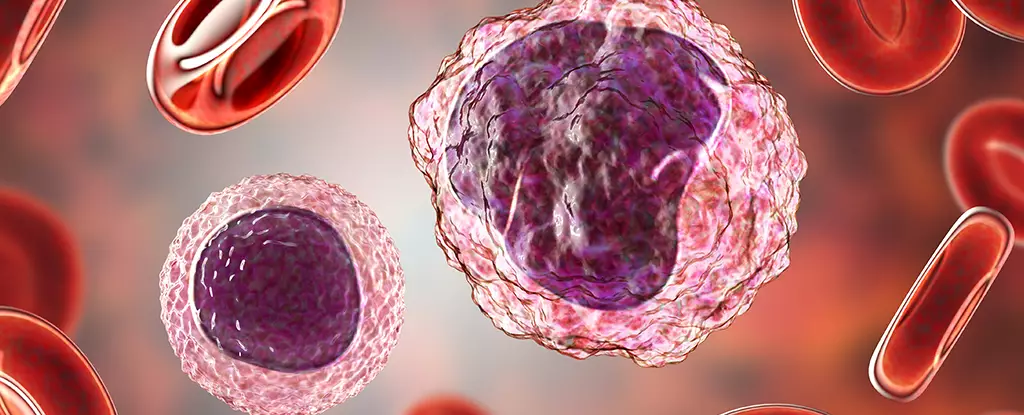Alzheimer’s disease, a progressive neurodegenerative disorder, has long been associated with the deterioration of brain tissue and memory loss. While extensive research has focused on the immune system within the brain, there has been a surprising lack of investigation into the white blood cells found throughout the rest of the body in individuals with Alzheimer’s. However, a recent study conducted by researchers at Northwestern University in the US has shed light on the subtle changes in gene expression found in immune cells of Alzheimer’s patients, suggesting a potential link to the body’s immune response in fighting the disease.
In their study, the team of researchers utilized single-cell gene translation technology to analyze individual white cells taken from both healthy participants and individuals with Alzheimer’s disease. The results revealed that every type of white cell investigated in Alzheimer’s patients exhibited epigenetic changes, which are modifications in DNA chemistry that can enhance or interfere with the expression of genes. These changes allowed specific sequences within the cells’ chromosomes to be read more easily, potentially influencing how these cells interact with the pathology of Alzheimer’s.
Further examination of the genes being exposed in the immune cells of Alzheimer’s patients unveiled traits that could play a role in engaging with the disease. For example, large white cells known as monocytes exhibited changes dependent on the individual’s apolipoprotein E genotype, a combination of genes associated with Alzheimer’s risk. Interestingly, a type of white blood cell called CD8 T cells presented differently in individuals with Alzheimer’s. Epigenetic changes made a membrane protein called CXC motif chemokine receptor 3 (CXCR3) more prominent on these T cells, potentially guiding them towards the brain. The implications of this unique behavior are not yet fully understood, but it may indicate that T cells are responding to signals of brain damage and attempting to repair the affected areas.
Though the precise mechanisms behind these epigenetic changes remain unclear, they present an exciting avenue for future research. Understanding how and why these changes occur could lead to significant advancements in our understanding of Alzheimer’s disease progression and potentially open up new avenues for therapeutic interventions. By unraveling the mysteries of immune cell gene expression in Alzheimer’s, researchers may be one step closer to developing targeted treatments that can slow down or even halt the progression of this devastating disorder.
This groundbreaking study highlights the importance of investigating the peripheral immune response in neurodegenerative diseases like Alzheimer’s. While much attention has historically been focused on the central nervous system, the findings suggest that clues to the disease’s development and progression may lie in immune cell activity throughout the body. By expanding our research scope to include peripheral immune cells, we may be able to uncover novel biomarkers and therapeutic targets that have the potential to revolutionize our approach to combatting Alzheimer’s disease.
The study conducted by Northwestern University researchers offers valuable insights into the intricate relationship between immune cells, gene expression, and Alzheimer’s disease. The discovery of epigenetic changes in peripheral immune cells indicates a potential role for the immune system in the development and progression of the disease. With further research, we may be able to unlock the mechanisms behind these changes and utilize them for the development of targeted therapies. By broadening our focus beyond the brain and exploring the immune response throughout the body, we can gain a deeper understanding of Alzheimer’s and work towards more effective treatments for those affected by this debilitating condition.


Leave a Reply